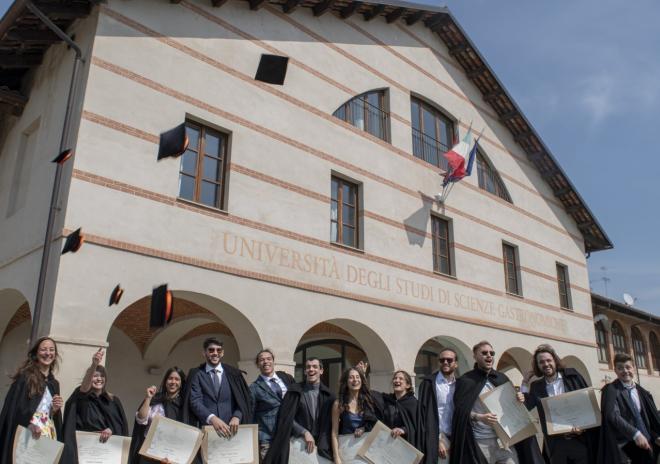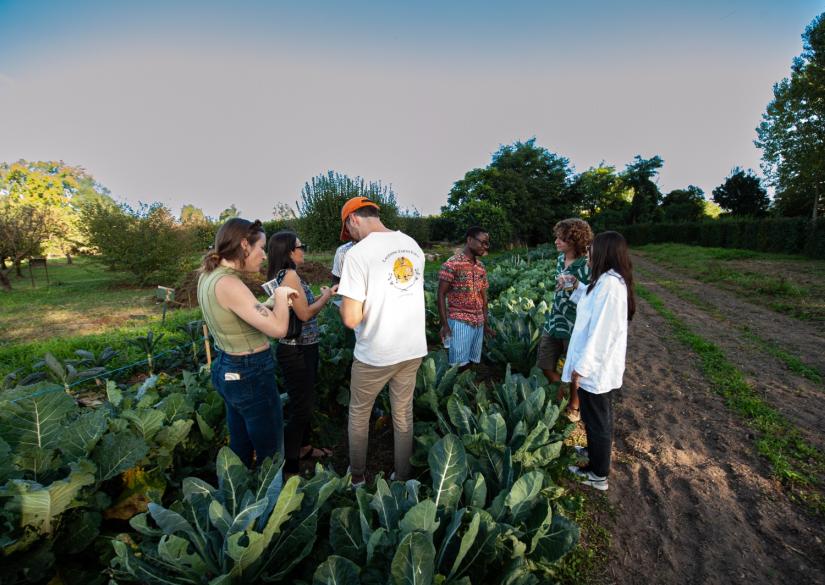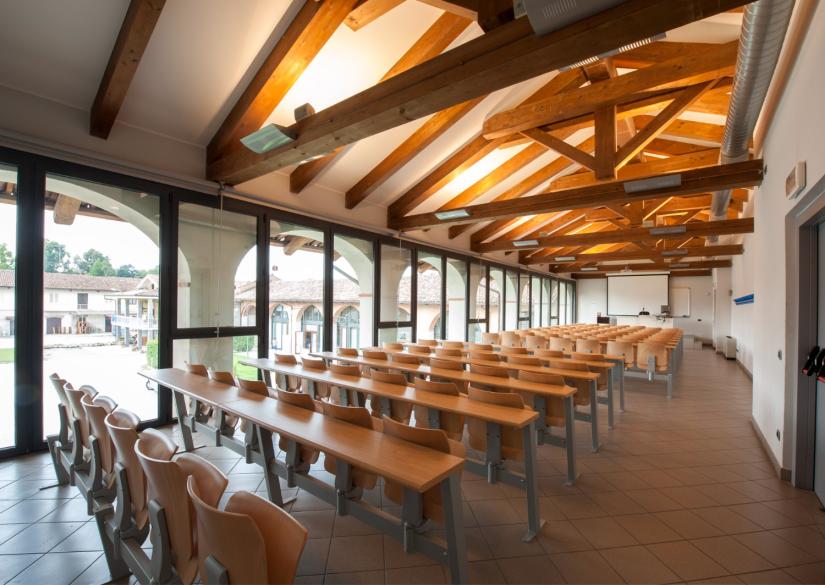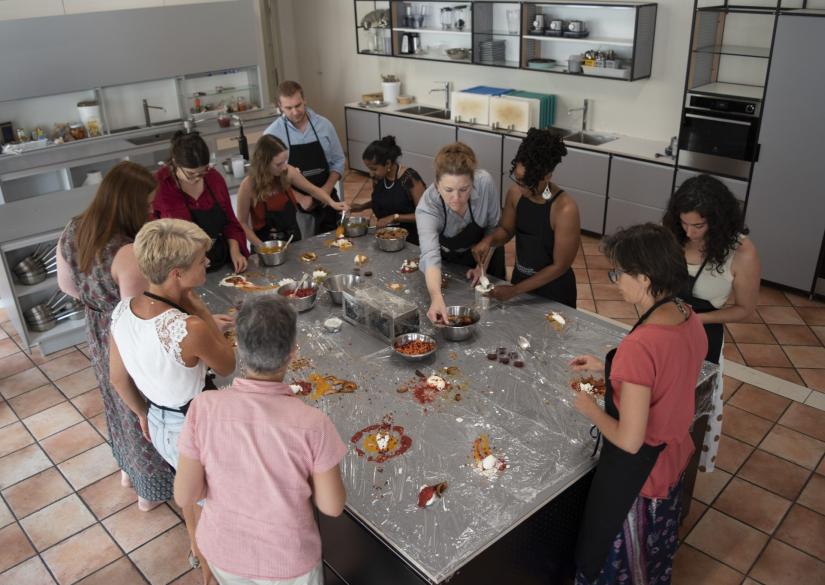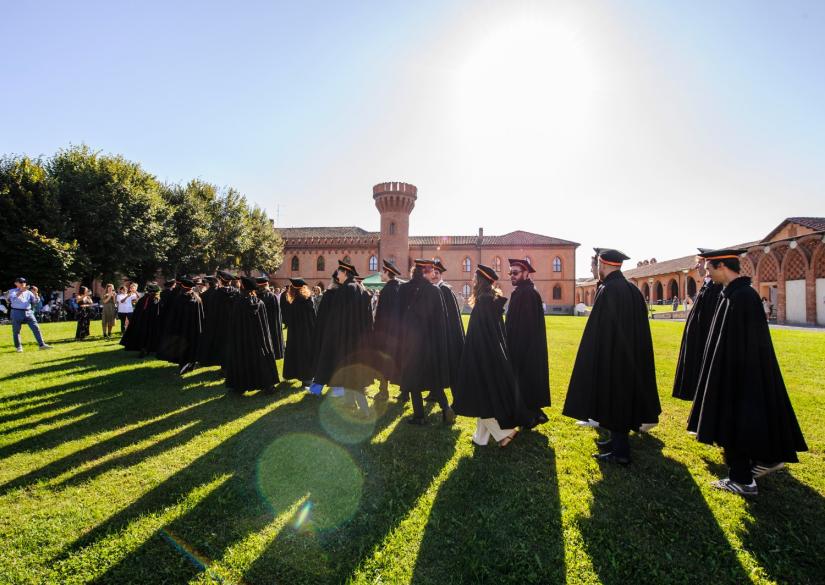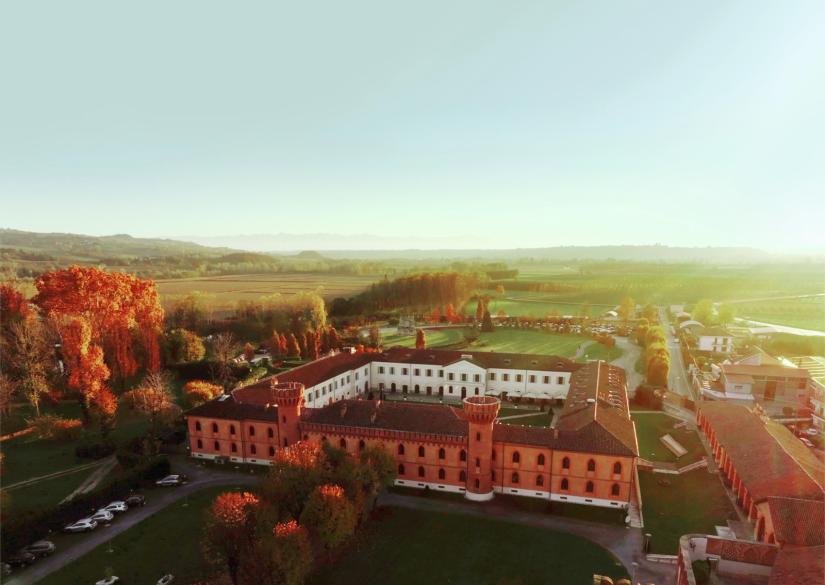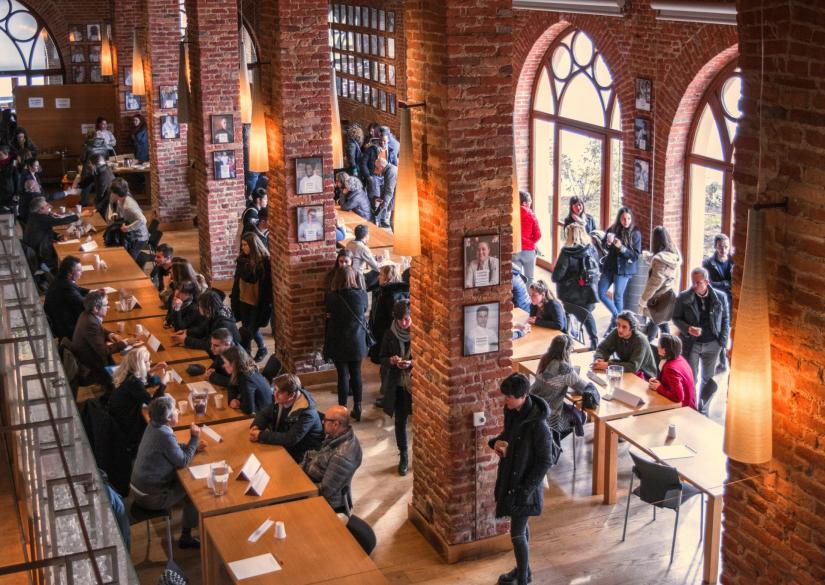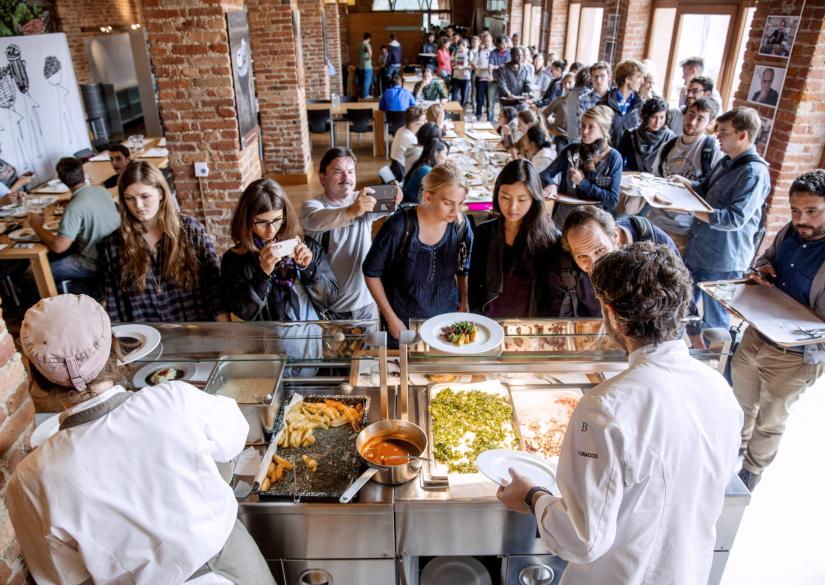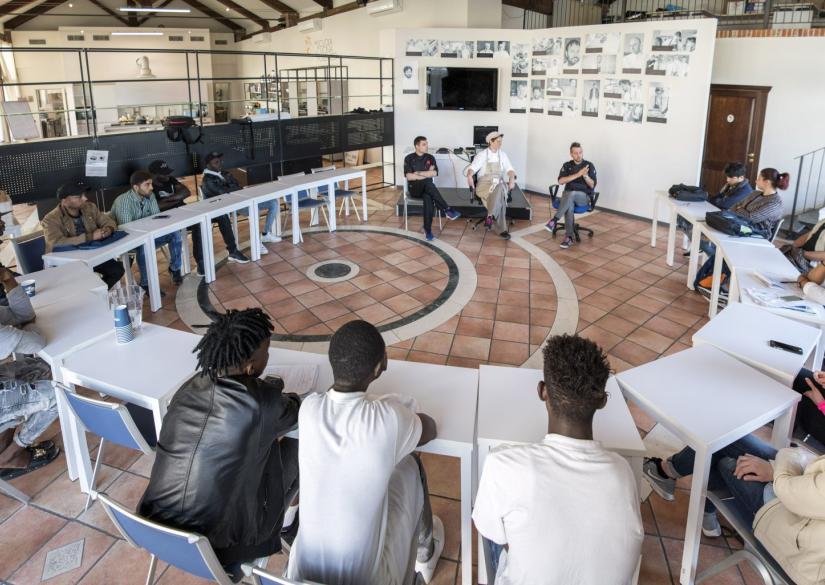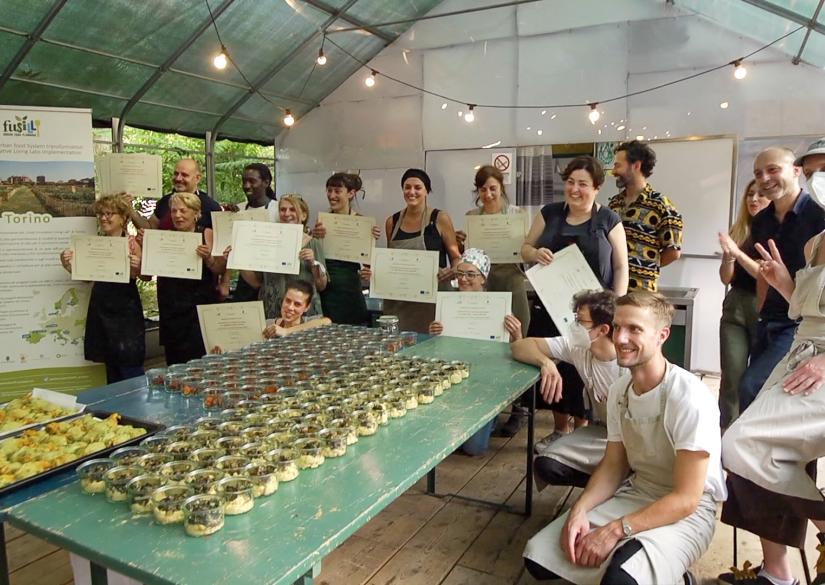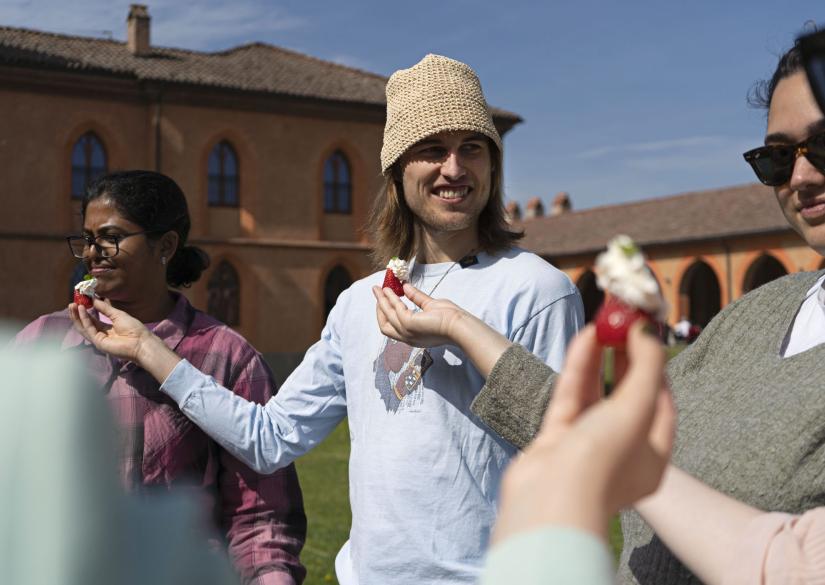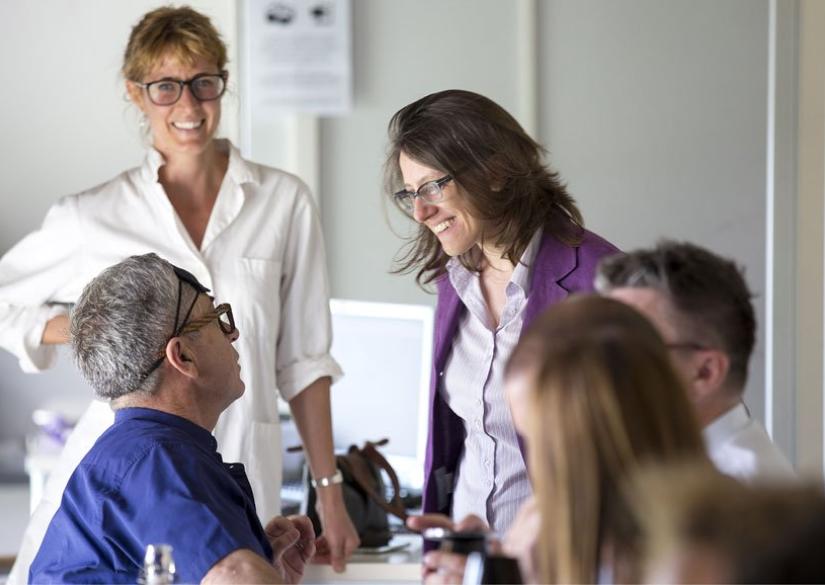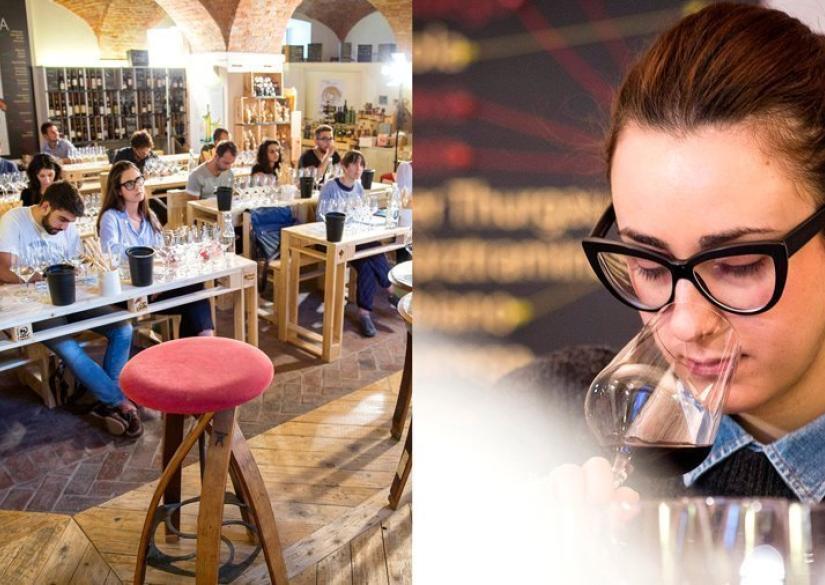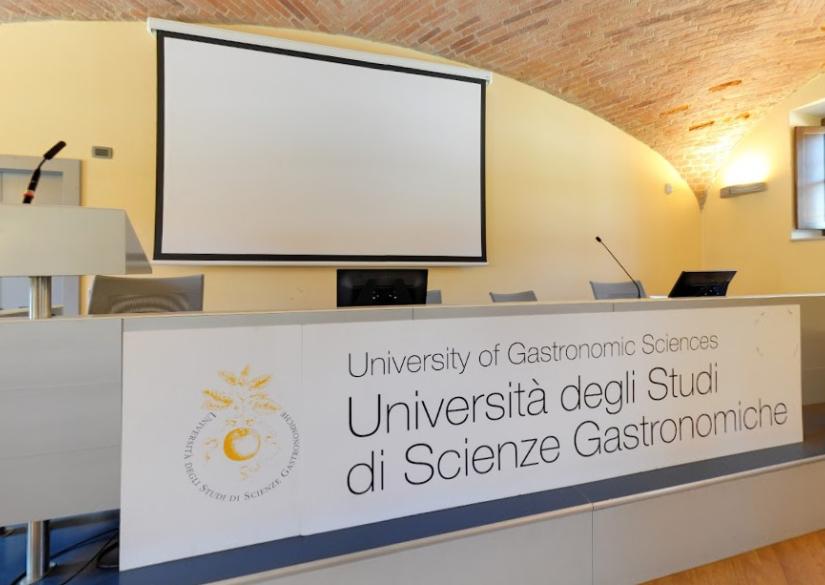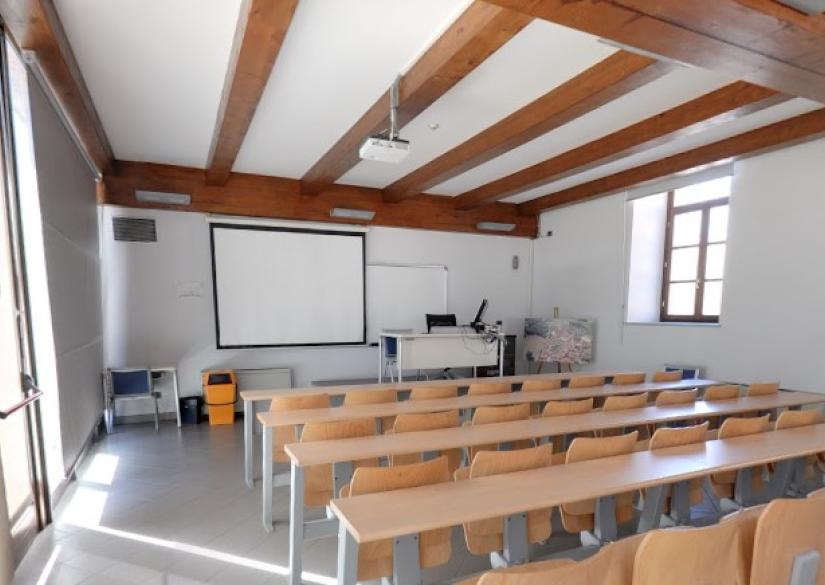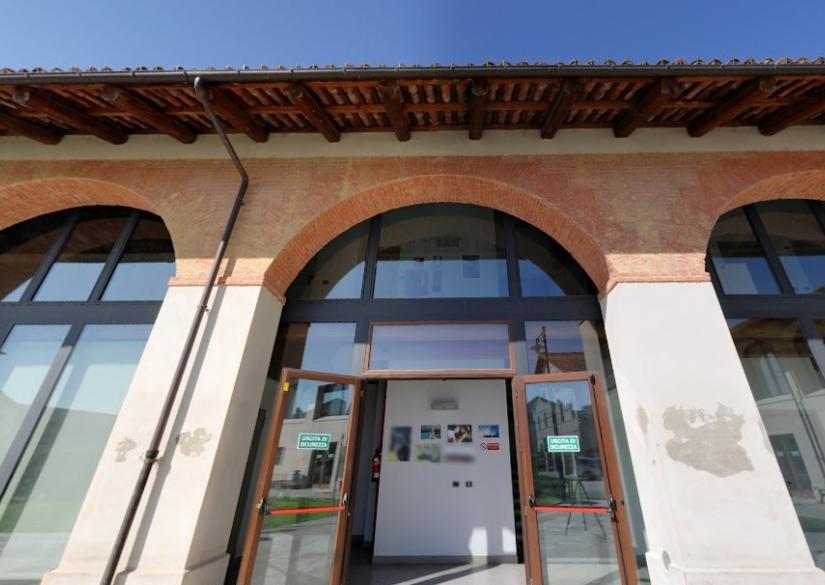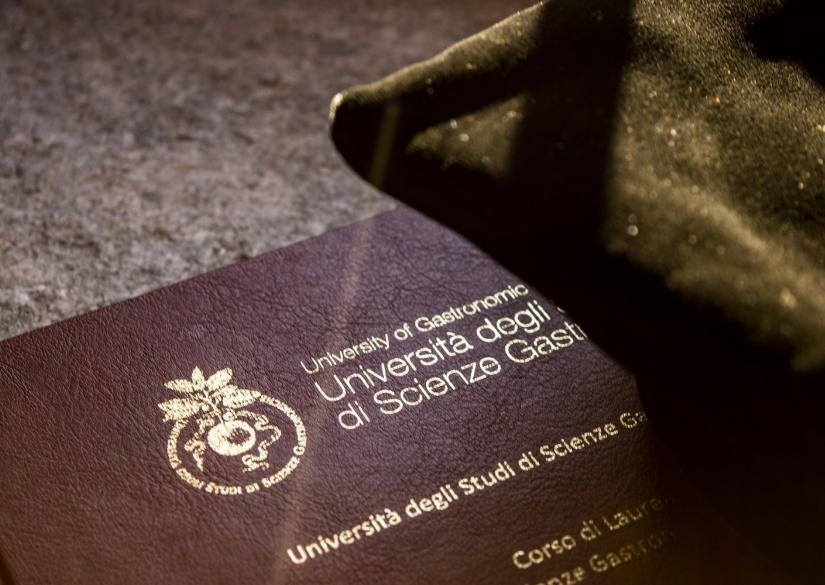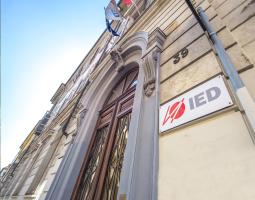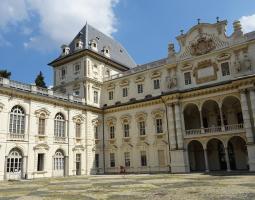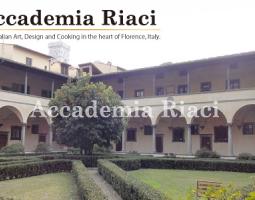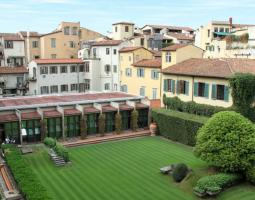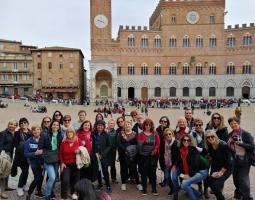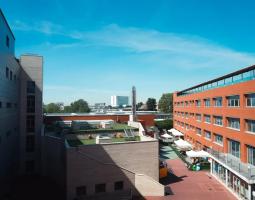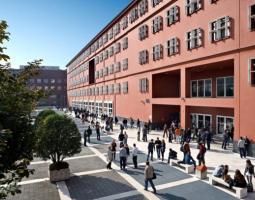University of Gastronomic Science, Università degli Studi di Scienze Gastronomiche
Programs and prices, tuition fees in University of Gastronomic Science, Università degli Studi di Scienze Gastronomiche
Foundation Year
- Age of students – from 18 years old,
- The duration of the educational course is 9 months.
The Preparatory Year Program is a course for foreign students who want to move on to higher education programs in the future. The course consists of 9 months of classes focused on improving the level of linguistics and general knowledge. The educational process is divided into two stages:
- NISTRASI (October-March) is a six-month immersion in language and cultural education at the University of Siena, aimed at achieving the B2 level in Italian. This stage lays the foundation for success in subsequent gastronomic research at UNISG. Extracurricular activities – local excursions, tavern lunches, expert meetings, tastings and seminars – improve the academic process and diversify the life of students,
- UNISG (April-June) – three months of intensive introductory modules in gastronomic sciences at UNISG, as a result of which a practical understanding of human nutrition, consumption, food trade is formed.
The cost of education will depend on the initial level of Italian language proficiency of the student:
- Option A: start with B1 and study at level B2 or higher,
- Option B: start with A2 and reach level B2 by the end of the program,
- Option C: Enroll as an A1 level student and finish with B1,
- Option D: for students already at the B2 level – you can skip the language courses and start a two-month internship in Siena in February.
The most expensive option is D, the most affordable is A.
Undergraduate Program
- Age – from 18 years old,
- The term of study is three years.
UNIGS has one specialization at the undergraduate level — Food Sciences and Cultures. The basis of the program is an interdisciplinary approach to teaching international students, thanks to which they will acquire competencies in all aspects of food production, integrating science, ecology, economics and culture.
The interdisciplinary approach includes such subjects as:
- Ecology, biodiversity,
- Molecular sciences, basic of taste,
- Economic policy, food sustainability,
- Agroecosystems, sustainability,
- Food anthropology,
- Food History,
- Global Food Governance,
- Philosophy of food, aesthetics of taste,
- Food, beverage, beverage management,
- Ethnobiology, food scouting.
The course will take three academic years and will include lectures and practical classes on the modern campus of the university in Pollenzo.
Master's Programs
- Age – from 21 years old,
- The duration of the educational course is one to two years.
Eight master's programs are taught here, which allow you to gain in-depth knowledge in the field of study, a high level of applied skills through internships, cooperation with scientific supervisors, and research groups. Students can choose a suitable, interesting area to study:
- Food Industry Management,
- Nutritional thinking,
- World Food Research,
- Communications, marketing in the field of food products,
- Agroecology, food sovereignty,
- Local Food Policy,
- Culture, wine management,
- Circular economy for food.
Educational course will take 1-2 years, depending on the chosen direction. A study trip of up to a year is included in the study process, which will increase the total duration of the degree.
Doctoral's Program
- Age – from 23 years old,
- The duration of the educational program is from two years.
The Inter-University Doctoral Research Course on Ecogastronomy, Food Sciences and Cultures, held in conjunction with the University of Turin, is a multi- and interdisciplinary programme of study and research focusing on the topics of food, nutrition and gastronomy. Both institutions support research and training activities on the following topics:
- Food policy, social systems and food sovereignty,
- Perception of food, culture, languages,
- Food science, biodiversity, sustainability,
- Food, health, human nutrition.
Summer School
- Dates — June-July,
- The educational program lasts three to five days.
Summer programs organized in June-July on the UNIGS campus offer students and experts in the fields of gastronomic sciences new knowledge, practical skills and experience that can be gained during excursions and seminars with specialized professionals. Educational courses last from three to five days and are taught in either English or Italian. Students wishing to study in English are offered the following programs:
- "Kitchen Sciences" – cooking classes combined with harvesting, processing and theoretical lessons about growing plants,
- The "Truffle Experience" is the discovery of unexplored aspects of the history of truffles: the study of botany, anthropology and history, economics and gastronomic transformation.
Two courses are taught in Italian, which take place in Melpignano and Reggio Emilia.
- "Bread: from grain to crust" – a study of the full cycle of bakery products,
- "Innovation and Strategy in the Food Industry" – study of economics, marketing tools.
Summer School
- Dates — June-July,
- The educational period is three to five days.
Summer programs organized in June-July on the UNIGS campus offer students and experts in the fields of gastronomic sciences new knowledge, practical skills and experience that can be gained during excursions and seminars with specialized specialists. Courses last from three to five days and are taught in either English or Italian. Students wishing to study in English are offered the following programs:
- "Kitchen Sciences" – cooking classes combined with harvesting, processing and theoretical lessons about growing plants,
- The "Truffle Experience" is the discovery of unexplored aspects of the history of truffles: the study of botany, anthropology and history, economics and gastronomic transformation.
Two courses are taught in Italian, which take place in Melpignano and Reggio Emilia.
- "Bread: from grain to crust" – a study of the full cycle of bakery products,
- "Innovation and Strategy in the Food Industry" – study of economics, marketing tools.
Winter School
- Dates – January,
- The educational period is four days.
In January, a short-term course "The Future of Wine" is held on the campus of the university, taught in Italian for sommeliers, restaurant owners, food and beverage managers, and representatives of the hospitality industry.
Over the course of four days, students will learn how to create a working wine list and wine cellar for a restaurant, how to maximize the economic and social benefits of wine for customers. Students will attend lectures led by experienced winemaking professionals, go on an excursion to the Piedmontese castle of Fontanafredda, and receive a certificate of new knowledge.
Description of University of Gastronomic Science, Università degli Studi di Scienze Gastronomiche
- Location: Pollenzo, Italy,
- Year of foundation: 2004,
- Language of instruction: English, Italian,
- Type of education: mixed.
The University of Gastronomic Science (UNISG) is a private, non-profit university that offers a wide range of higher education programs at the bachelor's, master's, and preparatory courses for international students.
The history of the institution began not so long ago - in 2004, the international association Slow Food, in cooperation with the Italian regions of Piedmont, Emilia-Romagna, opened an academic site in Pollenzo. Today, the university is a popular place for higher education among local and foreign students, as it offers narrow-profile specialties at all levels. An extensive list of academic services, opportunities for extracurricular development, obtaining applied skills, funding, and other aspects of education that are important for international students make the University of Gastronomic Science an excellent place to acquire valuable knowledge and further prospects for career development.
The university gives students the opportunity to become part of the world's first interdisciplinary and specialized programs in gastronomic science. The founders of the University of Gastronomic Science believe that gastronomy is about understanding food in its entirety. Through a unique approach to teaching, the curriculum combines theoretical learning with practical experience, helping students understand diverse industrial realities and develop critical thinking. The educational process is based not only on food production, but also on the study of such areas as economics, ecology and culture, which makes the educational process truly rich, multidisciplinary and applied.
Educational process
Study trips are a special and mandatory aspect of the academic process, focused on students gaining applied skills and new knowledge. These educational activities focus on products that are always studied in their surrounding context. The itineraries are designed to give equal attention to both small-scale producers and industrial-scale production – making each trip a highly effective way to understand the gastronomic culture of a region or country. Students' classroom activities are integrated into field trips, allowing them to learn about food cultures, processes through first-hand experience in the field.
Scientific achievements
UNIGS's research activities are aimed at expanding knowledge, promoting innovation in the field of gastronomic research and developing through cooperation at the national and international levels with universities and research institutes.
UNISG research is based on three interdisciplinary areas: environment, perception and quality, and mobility. Highly qualified researchers, research group leaders, students and members of external organizations in related fields are involved in the work.
Things to know about
UNIGS, in cooperation with the Cherasco Institute of Viticulture, has built several rooms specifically for snail breeding.
Accommodation, meals, prices
UNISG does not have its own residences, but offers assistance in finding suitable housing by publishing ads for available apartments and rooms. Most students choose to live in Bra, as it is well connected to Pollenzo and the Piedmont region by local public transport.
Academic Tables is more than just a university cafeteria: the dining hall organizes group lunches from 12:00 to 14:00, and throughout the day, from 8:00 to 16:00, its doors are open to students, faculty, guests, visitors and staff to study, hold meetings or organize events. The qualified staff of the Pedevilla kitchen prepares unique dishes in collaboration with guest chefs: since 2014, chefs from all over the world have been invited to the university to prepare their most exquisite recipes for UNISG students. To provide students with a variety of delicious meals, quality ingredients grown in the classroom garden or sourced from official suppliers from ethical companies are used daily. To reduce food waste, students can book meals through the university's online system.
Activities University of Gastronomic Science, Università degli Studi di Scienze Gastronomiche
UNISG has a large community of students that brings together pupils with different interests, organizes many events, and connects students with management. The Student Union manages dozens of thematic clubs, each of which is a gathering place for like-minded people united by the same interests and hobbies. List of the circles of interests at UNISG is represented by:
- Fine Arts,
- Adventures: hiking, camping,
- Chorus
- Cider lovers,
- Rock climbing
- Dancing
- Foraging
- Music
- Running.
Members of music, dance, and vocal communities take part in events dedicated to the holidays: from music concerts in honor of Christmas to cooking classes at Easter. Circles of interests and different clubs dedicated to crop production, sports and other areas regularly organize seminars for other students and invited guests, are engaged in project and research work.
The city of Bra is a great place to explore gastronomy! Despite its small size, the city is full of activities in various places, many of which offer the opportunity to taste and buy excellent quality products. It boasts excellent restaurants, bars, cafes, bakeries, artisan food shops and wine shops. Located in the heart of the province of Cuneo, which is famous for its quality meats and cheeses, Bra is best known for its eponymous veal sausage Salsiccia di Bra and Bra PDO cheese, as well as its historical tradition of vegetable growing.
Advantages
- Unique higher education programs,
- A network of partnerships with universities, research centers around the world,
- Research projects of international level,
- Extensive opportunities for extracurricular development of individual interests and abilities,
- Prepared laboratory rooms on campus, contributing to the acquisition of applied skills,
- Academic trips included in the curriculum.
Facilities and equipment at University of Gastronomic Science, Università degli Studi di Scienze Gastronomiche
The UNISG training area is located in Pollenzo, a small town located about 6 km from the center of Bra, which has a population of about 30,000 people and is located on the hills of Roero and Langhe in southern Piedmont. The city of Bra has developed since the Middle Ages, and modern Pollenzo was an important Roman city known as Pollencia.
Thanks to good transport links and comfortable pedestrian infrastructure, the main public services can be easily reached on foot or by bike: the train station and buses, the hospital and emergency department, sports facilities, shopping centers, post offices, banks, the weekly market, attractions and entertainment are a few dozen kilometers from the campus.
The university is located in a complex called the Pollenzo Agency, commissioned by King Carlo Alberto of Savoy in 1832. At that time, fourteen farmhouses, the Agency building, the tower overlooking the church square and, finally, the neo-Gothic parish of San Vittore were built. Today, the academic complex is a UNESCO World Heritage Site.
The modern infrastructure of the campus is represented by dozens of rooms for lectures and practical classes, unique laboratories, halls for self-study and many others, allowing students to gain qualified knowledge and practical skills. Some of the special places of the educational infrastructure are:
- Laboratory of Sensory Analysis and Consumer Science
Practical classes provided in the courses of Sensory Analysis and Consumer Science are held here, in addition, the laboratory is often used by foreign students for graduation projects, which include a part related to the study of sensory perception. The room consists of 24 cabins for individual work, equipped kitchens for the preparation and storage of tested products. The cabins are equipped with a computerized data acquisition system and lighting that allows products to be evaluated in a concealed environment.
- Pollenzo Food Lab
A laboratory dedicated to applied research of gastronomic transformations. The main activities on which the work of the Pollenzo Food Lab is focused are the education and training of young professionals. Practical classes in several specialized courses, optional classes, master classes are held here. For this purpose, a lecture class for 25 seats, equipped with computers and projection screens, a workshop consisting of four working areas, a fully equipped professional kitchen, a research center with shock coolers, fermentation chambers and other equipment have been prepared.
- Wine Bank
A third-party training complex that has a long-standing partnership with the university: Wine Bank organizes seminars, wine tasting events, teambuilding exercises and other events related to the world of wine. Founded in 2001 with the aim of preserving the historical significance of Italian wine, the Wine Bank is a special museum that is open to individual visitors and groups for wine tastings and events, offering courses that promote the culture and heritage of wine on the peninsula.
- UNISG Library
It opened in 2004 to support the university's students and, through its extensive collection of books and magazines, serves as a source of information for ongoing gastronomic research. Thanks to the agreement, students, teachers and technical staff of each university will be able to use free of charge and on a reciprocal basis many services offered by all libraries of partner universities: from reproduction and printing of photographs from home to receiving books, copies of articles in tangible and online formats. In the library, you can use computer stations and access the Internet, conduct bibliographic searches and access documentary resources.
- Laboratory of Agroecology
It includes four sections devoted to sustainable development in the fields of ecology, economics, social and cultural sciences, where research activities take place on a daily basis, which are carried out not only by researchers, but also by students in most fields.
- University Gardens
University gardens are an ideal laboratory for the application of agroecological principles developed in the classroom and learned during study tours. The main goal of UNISG gardens is to promote the training of conscious, informed and critically thinking deliciennes in various methods of food production. The University Garden, located in the Pollenzo Agency Park, has an area of 1500 square meters, divided into different zones: for growing vegetables in the open field, greenhouses and composting area, an indoor structure for the primary processing of vegetables and a shed for tools, areas for aromatic and wild herbs with a canopy for tools. The brick building houses the House of Biodiversity, a plasma bank with 90 local varieties of wheat.
- Garden in Condotta
Located in the park of the Pollenzo agency, it is dedicated to kindergartens and primary schools of Pollenzo and is focused on carrying out activities for environmental protection, nutrition education in collaboration with Slow Food and the Municipality of Bra.
- Gastronomic Garden 'Academic Tables'
Located in the courtyard of the dining hall, it is the epitome of what students are taught at UNIGS: a variety of flowers, fruit and vegetable crops, trees, and other plants grow, live, and bloom through the care of students and staff. A large amount of what grows in the university's gardens is used in the preparation of meals in the dining room. Even the garden furniture has been created in collaboration with students to make a dining room experience a complete gastronomic experience!
Admission dates and extra charges
The dates and length of the academic year depend on the student's chosen program, but most courses start in October and last until June. Holidays are provided on Saturdays and Sundays, on national and international holidays, during holidays: from December to January, from July to August.
Approximate list of additional costs to tuition fee includes:
- Registration fee,
- Off-campus accommodation, meals,
- Some extracurricular activities,
- Customized educational materials,
- Additional academic support,
- Annual student fees,
- Personal expenses.
Enrolment process
Applicants go through several entrance stages:
- Submission of online application, required documents,
- Payment of registration fee,
- Passing an interview, possible tests,
- Receiving an official invitation to enroll,
- Arrival at campus and start of classes.
Perspectives
The alumni community is represented by qualified professionals who have built careers in the fields studied at the university. Every year, students demonstrate excellent results in final exams, thanks to which they quickly find a job in their specialty.
Entry requirements, how to apply, what is required to enrol
Before entering higher education programs, foreign applicants must complete the International Foundation preparatory course — for enrollment in it, you will need a certificate of complete secondary education with assessment transcripts, language test results at a level not lower than B1. After completing the preparatory program, foreign students will be able to move on to studying in one of the bachelor's programs.
For admission to master's specializations, students will need a bachelor's degree in a related field, report card with translation, a resume, and a personal statement. Also, all foreign candidates must have personal documents: passport, health insurance, visa or residence permit.
Educational process is conducted in English and Italian, so knowledge of them is an important aspect for admission: it is most important that the candidate has a sufficient level of English, and Italian can be studied in parallel with the study plan.
Scholarships University of Gastronomic Science, Università degli Studi di Scienze Gastronomiche
UNISG offers several forms of scholarship awards: for domestic students, students from the United States, and all students from any internationality. General scholarships are awarded to first-year students who have distinguished themselves with special academic success at the previous place of study and have passed the entrance stages to the university. The awards are partial scholarships of €5,000 and €10,000 , covering part of the costs of the program and other expenses.
Students can also apply for a university fee waiver if they meet all of the following requirements:
- Applying in March or May,
- Admission to an undergraduate program with a minimum admission score of 70 out of 100,
- Low income or insufficient level of property status.
Students of the summer school at UNISG are offered a discount if they decide to enroll in higher education programs. The award of 500€ covers part of the cost of the first year of study.
Institution on the map
Residence permits, citizenship and other services
- Guardianship services during the studies
- Student supervision
Review about University of Gastronomic Science, Università degli Studi di Scienze Gastronomiche
Recommendations on when to apply
| Language courses, schools and children's language camps | Primary and secondary education - private schools | Preparation programmes for entering universities - higher education | Higher education (after completing accredited programs A-level, IB, High School) - Bachelor, Master, MBA |
| - we recommend to apply 6-9 months before the start of the course (some camps and schools offer discounts for early booking or for lengthy study programs) - there are some very popular and high demand children's camps, where the applications need to be submitted 1 year in advance (in particular Switzerland , Great Britain , USA , Canada , Austria) | - we recommend to apply one year before the start of the training program, - some schools have a specific time frame (September-November - please specify an individual school) - some schools require tests in several stages (UKISET, internal tests of the school: English, mathematics, logics, subjects, interview, some require a personal visit) | - we recommend to apply one year before the start of the program, - for Foundation and Pathway programs, IELTS and TOEFL certificates are usually required, respectively | - recommended submission one year before the start of the program, - the deadline normally closes in January, for TOP HEIs and, as a rule, in March in other universities - for a bachelor, a Foundation or Pathway preparatory program a completed A-level, IB, High School + IELTS / TOEFL are required - for Masters you need a graduated higher education, in some cases you need a pre-Masters program - MBA requires completed higher education, work experience preferably at least 2-3 years, etc. |



